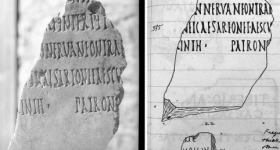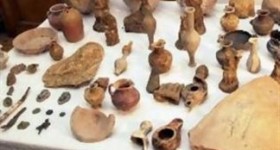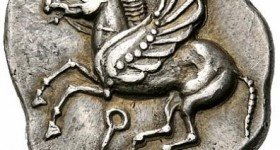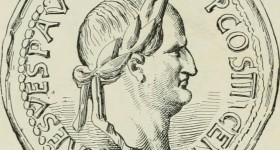Philhellenism at the Onset of the Greek Revolution

In the first years of the Greek revolution the government of the major European governments had little sympathy for it. Those governments’ subjects however often took a very different view. Travellers had increasingly visited Greece when the Napoleonic wars had made the Italian Grand Tour impossible, and had written glowingly of their experiences. The study of Latin and Greek was the mainstay of higher education. Many saw the Greeks as representing Christianity embattled against Islam, and as the birthplace of Europe’s civilization resisting the barbarism of Asia. Perhaps only in the foreign reactions to the Spanish civil war of the 1930s has there been such a sharp contrast between the cold abstention of governments and the passionate involvement of individuals.
The shocks of the Napoleonic wars shaped the policies of the European powers in the following decades. In November 1815 at the close of the Congress of Vienna the victors over Napoleon – Britain, Russia, Austria and Prussia – signed a treaty continuing for twenty years their Quadruple Alliance, which was pledged to uphold by force the post-Napoleonic settlements in Europe. Three years later France was added to the group making is a Quintuple Alliance. To sustain the so-called concept of Europe, the powers were to meet at regular congresses ‘for the purpose of consulting upon their common interest and for the consideration of the measures most salutary for the maintenance of the peace of Europe’. It was from the second of these congresses in 1821 that Tsar Alexander sent his uncompromising denunciation of Alexander Ipsilantis’ incursion into Moldavia and Wallachia.
In time the Holly Alliance was endorsed by all Europe’s rulers except the Pope, the non-Christian sultan naturally, and Britain on the ostensible grounds that George III was incapable and the Prince Regent not yet the monarch. The Holy Alliance was anathema to progressives. As Shelley wrote in the preface to Hellas, in a passage which the cautious writer omitted from the first edition: ‘This is the age of the war of the oppressed against the oppressors, and every one of those ringleaders of the privileged gangs of murderers and swindlers, called Sovereigns, look to each other for aid against the common enemy, and suspend their mutual jealousies in the presence of a mightier fear. Of this holy alliance all the despots of the earth are virtual members.”
However, those who joined or endorsed the Holy Alliance were far from enthusiastic about it: Metternich dismissed it as ‘a high-sounding Nothing’, Talleyrand as ‘a ludicrous contract’. Nevertheless the formation of the Holy Alliance seemed to signal a commitment by governments to act from religious principle rather than self-interest. In theory this might mean that Greek appeals to altruism would win support from governments in the same way as from individuals. But there was of course an inherent and disabling contradiction in the principles of the Holy Alliance when applied to the Greek situation: the Alliance’s commitment to uphold the Christian religion meant support for the Greeks, but its commitment to uphold government meant support to the Sultan. Thus in the Greek conflict the influence of the powers of Europe would inevitably spring from their own national interests, and the only hope for Greece was that these interests might come to coincide with her own.
A number of foreigners took ship in 1921 to go and fight for the cause of Greek independence; among them ex-soldiers, murderers, intellectuals and aristocrats. Marseilles was the pint of departure for most of the early philhellenes. Eleven ships sailed from there between the outbreak of the revolution and the end of 1822, carrying in all some 360 volunteers, the largest contingents coming from the German states, France and Italy. At the end of 1822 the French authorities closed the port to ships bound for Greece, perhaps because France was now following Meternich’s pro-legitimacy lines, or because reports of returning philhellenes showed that volunteers would only find misery, death and ingratitude. But in the early days optimism and idealism run high. Throughout France, the German states and Switzerland politicians, churchmen and university professors proclaimed the triple message that Europe owed its civilization to the ancient Greeks, that the modern Greeks were their descendants, and that Greece could be regenerated by driving out the Turks.
The message appealed particularly to the idealistic young. A youthful doctor in Manheim said that the call went through him like an electric shock. A theology student in Prussia was excited by the idea of fighting were Epaminondas and Themistocles fell. The other two main groups who rallied to the Greek cause were demobilized soldiers and political refugees, and many volunteers were both. For example, the Wuerttemberg count General Normann, who had fought both for and against the French in the Napoleonic wars and was thus not welcome in any army, led a motley German battalion to Greece from Marseilles in January 1822.
Apart from those with an obvious motive for going to Greece – idealism, soldiering, exile – the philhellenes included a clutch of eccentrics: a Bavarian china manufacturer intending to set up a factory in Greece, an out-of-work French actor, a dancing master from Rostoc, and even a Spanish girl dressed as a man.
Many of the volunteers were rich enough to pay for their own travel on the road to Marseilles and on the voyage to Greece. But many others, especially the idealistic young depended on the goodwill of others and committees were therefore formed to raise money to help the volunteers on their way. The most numerous were in democratic Switzerland, unaffected by great-power politics, where virtually every town had an active Greek society. The most practical were in the German states. Thus the enthusiastic young philhellenes on the way to Marseilles became a familiar sight on the roads to Europe. ‘In different parts of the country’, wrote an English traveler, ‘I met with numerous companies of young men on foot, with knapsacks at their backs, on their way to Marseilles, there to embark for Greece. These parties appeared to be composed chiefly of young German recruits and runaway students, and from the boisterous enthusiasm which they generally manifested, it was my endeavour always to avoid them as much as possible.’
Associations to help the Greek cause were not restricted to the central parts of Europe, nor to raising money to help individual volunteers on their way. Greek committees were established in Spain, France, England, Russia and America. Their activities included raising subscriptions to help the Greeks directly by sending money or supplies, organizing relief for Greek refugees from the conflict, and pressing their governments to act on the Greeks’ behalf. In Spain Madrid has a claim to have formed the very first Greek committee. France was last in the field. There was an early outpouring of French pamphlets supporting the Greek cause – over 30 in 1821-2 – but a specifically Greek committee was not established until February 1825 in Paris. By then Greece had moved into the foreground of public and government concern, partly because of the profound impression made by the death of Byron, partly because the outcome of the war came to be more clearly seen as affecting France’s national interest.
In England the question of support for Greece became entangled in domestic politics. Its earliest expression was in October 1821 from Dr Lempriere, author of the famous classical dictionary, with an appeal for funds published in the Courier, normally a paper reflecting the views of Tory government. But the Courier quickly abandoned the cause of the Greeks. The editor ‘changed his note in a very few days when he found that [his sentiments] were unpalatable go our Government’. The Tory government line was that neutrality meant not attempting to support the Greek cause with funds, men or equipment; a Tory philhellene was a contradiction in terms. Canning, however, in 1822 took the view that private subscriptions could go hand in hand with official neutrality, so that England’s influence in Greece could be strengthened without jeopardizing the alliances of powers. Thus in March 1823 the time was ripe for the formation of the London Greek Committee, but even this was a reflection of domestic politics. Out of nearly forty members of the parliament in the committee of 85 virtually all were Whigs, Radicals and Independents. Another feature of the list was the number of Scottish and Irish names, suggesting that ‘perhaps philhellenism provided a kind of surrogate for nationalist motion which lacked expression at home’. The London Greek Committee was, in short, a protest movement, and opposition to the government was the prime qualification for membership of it.
In the United States Greece found an immediate champion in Edward Everett. He was elected professor of Greek in Harvard and visited Greece. In 1820 he became editor of the North American Review and in 1824 a member of Congress. In 1821 Korais sent Everett the Greek appeal that ‘it is in your land that Liberty has fixed her abode’, so that ‘you will not assuredly imitate the culpable indifference or long ingratitude of the Europeans’. At Everett’s instigation this appeal appeared in the newspapers. There followed a cataract of pro-Greek articles in the press. They praised Greek heroism, condemned Turkish atrocities while ignoring or explaining away Greek ones, and published local pro-Greek activities.
These activities were many. Some of the earliest Greeks sent provisions to Greece. In 1821-2 Charleston sent fifty barrels of dried meat and Springfield sent flour, fish, meat and sugar. Fund-raising associations sprang up most of them channeling thair contributions through the committee of New York. By the end of 1824 the New York Committee alone had raised the equivalent of 8000 dollars ( a sum as large as all the subscriptions which the Greek Committees have been able to obtain in England for the past 18 months).
In Russia there was fervent and widespread sympathy for the Greeks, based not only on the usual grounds but also on Russia’s special debt to Greece as the bringer of Christianity to Russia. Prince Alexander Golitsyn wrote of the desire ‘to help the sons of the country which fostered enlightment in Europe and to which Russia is even more obliged having borrowed from it the enlightment of faith, which firmly established the saving banner of the Gospels on the ruins of paganism’. There was not incompatibility in Golitsyn’s position as both minister and philhellene since aid for the Greeks was government policy, but this aid was to be restricted to two purposes only: relief for Greek refugees from the conflict, and the ransoming of Greek captives who had been enslaved. It was not part of the policy to send military supplies to Greece, and when on one occasion weapons on their way to Greece were intercepted they were sold and the money given to refugee relief.
Golitsyn was the prime mover in raising funds for the Greeks. In a government announcement of August 1821 he called for subscriptions to be made through the church in confidence that ‘pious Christians, in faith and love, will certainly lend a helping hand’. Golitsyn also urged military governors to seek donations from the people of their regions, and civilian officials to approach the local merchants to participate in this ‘philanthropic work, which alone can bring eternal treasure and before which all the riches of the world are nothing’. Large individual donations helped swell the Russian total. Contributions came even from the peasants in remote rural communities, where donations of as little as ten kopeks were touchingly recorded. Fund-raising did not slacken after an initial burst as happened elsewhere. By the end of the decade Russia had raised several million roubles for the Greeks.
The number of Greek refugees needing help was formidable. Golitsyn in his first call for donations claimed that nearly 4000 reached Odessa in a single day. A further 40.000 Greeks crossed into Russia from Moldavia and became the responsibility of the relief committee there. Help was given not only in money but also in medical care, shelter, education and employment.
The second aim of Russian philhellenic activity was the ransoming of Greeks enslaved by the Turks, but this proved far more difficult than helping refugees. The ransom effort began in the summer of 1822 and was prompted by the distressing reports of slaves taken after the Turkish destruction of Chios. The initial came from the Greek clerics of Bessaravia. Their object was ‘to save from the abyss of perdition as many Christians as providence will allow’. The first estimate of the scale of the problem gave the number of captives as 100000 and the total ransom money needed as 500000 roubles, a sum that was in fact raised in the next 12 months.
This type of Philhellenism arising from the passions of a revolution did not last long. Political strife among the Greeks and the direct influence of the foreign powers diluted the pure ideals of excited foreigners. As the revolution dragged for most of the 1820s with its inevitable ups and downs, the exalted Philhellenic feelings turned into military and political feuds, struggle for monetary gains, power grabbing exercises. But this is another story altogether!




